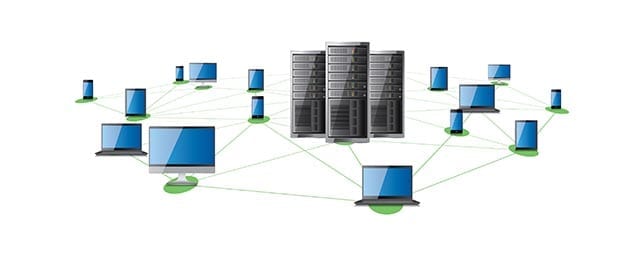
Not too long ago, physical servers were the first choice for businesses. Adding a new application or process involved a timely process purchasing hardware, allocating power, and providing space. Now, businesses they have another option with virtualization that moves them towards the digital age and helps stay competitive in the marketplace. As demand for data grows, businesses need to digitize their processes, mostly importantly their servers. Virtual servers are not necessarily a new trend, but it’s brand new for businesses that rely on older technology for their data and operations. While it might seem daunting at first, virtualization offers capabilities that are not possible in a physical infrastructure and offer businesses immediate benefits including cost savings, easier implementation, and improved productivity. Virtual servers are valuable tools for businesses worldwide, but how does it work for your business?
What is a Virtual Server?

A virtual server is a web server that shares hardware and software with other operating systems. They are not dedicated servers and a computer can hold multiple servers without affecting performance. They allow multiple servers to run on one physical host and share the resources for a fraction of the cost. This single physical server can be divided into multiple virtual servers using special software, distributing power more effectively and capable of running multiple operating systems and applications. Instead of purchasing 20 physical servers for different purposes, instead businesses can use a few servers for virtualization. It’s a very different way to looking at hardware and software hosting, and offers benefits that can only be found from virtual servers.
Benefits of Virtual Servers
1. Reduced Costs
Since you don’t need a physical server for every application, it’s easy to reduce the amount used and save costs. These server reductions provide massive savings that add up quickly for businesses. Fewer servers means less power and cooling costs. There’s less costs for network equipment, racks, and floor space needed to host physical servers. Since there’s less servers to manage, your businesses saves costs on utilizing IT staff for server maintenance.
2. Disaster Backup
Compared to backing up multiple physical servers, it’s much easier to backup a virtual server in case disaster strikes your business. Even if hardware fails, virtual servers can immediately migrate all critical data to working hardware with little downtime with image-based backup. Most virtual servers allow you to easily test a disaster recovery plan and make sure your infrastructure is prepared for any possible issues.
3. Faster Server Deployment
Deploying a virtual server is much faster removes the hours spent on installing a physical one. In the past, businesses had to through multiple stages to install a physical server including purchasing, waiting for server arrival, moving to an appropriate space, and installing applications and operating systems. If your businesses has new data demands, it’s easy to clone an existing virtual server and get it up and running at a fraction of the time.
4. More Office Space
Physical servers and equipment take up tons of room in your office. Virtual servers drastically reduce the amount of hardware you need onsite. Less physical hardware means there’s more space for employees and other important equipment your business needs to succeed.
5. Environmentally Friendly
Going “green” is important to customers these days, and they’re always looking for businesses that are environmentally conscious. Cutting down on physical servers and migrating towards virtual ones help businesses reduce their carbon footprint and lower their energy consumption. More virtual servers means less energy costs and pollution output from your business.
6. Better Business Efficiency
Virtual servers offer improved efficiency throughout your business. Less physical servers means there less time devoted to managing and maintaining them. With shorter setup and maintenance times, dedicated staff can spend their time on more productive tasks that helps achieve business goals such as development, sales, or marketing.
Make the Switch
Virtual servers are a powerful tool that can lead to positive transformation and offer benefits that are hard for business to ignore. It’s a revolutionary solution that opens up new possibilities for IT management and relieves the typical data headaches businesses experience daily with physical server management. While migration seems like a challenging task, it doesn’t have to be with the right provider. At Servpac, we can answer questions, guide you through the process, and migrate all your business data to virtual servers. For more information, call 808-237-5000 or request a consultation today.

